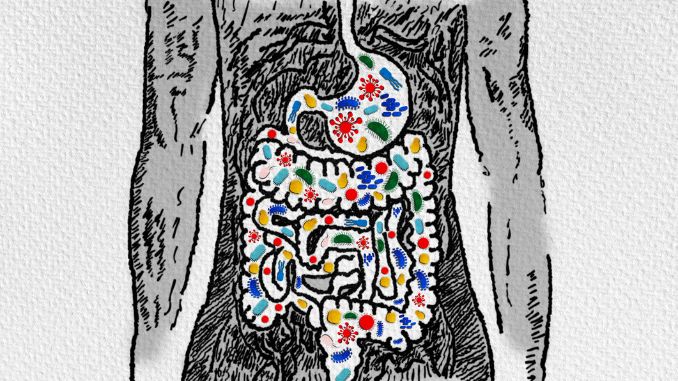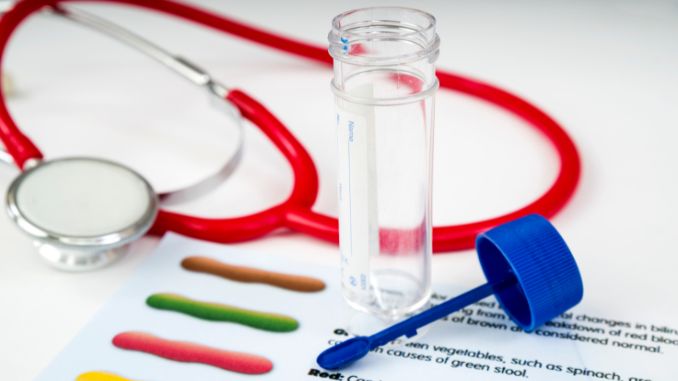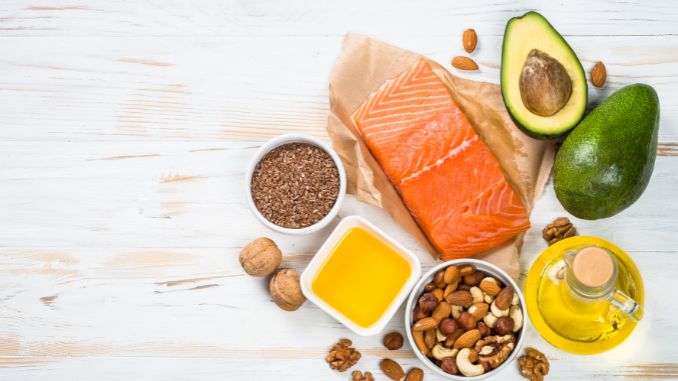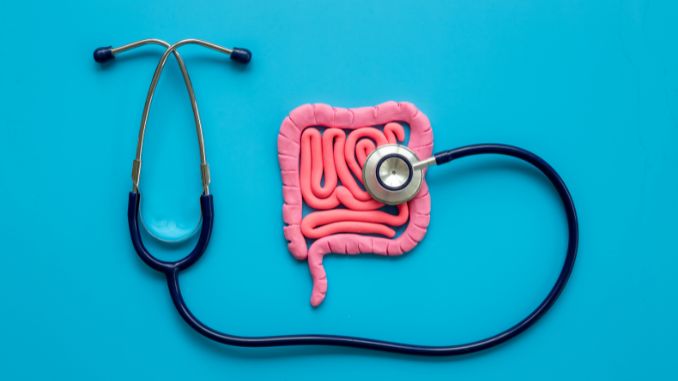Have you been feeling unusually fatigued, dealing with digestive issues like bloating or diarrhea, or noticing an uptick in food sensitivities? You might be experiencing a condition known as leaky gut syndrome, or increased intestinal permeability. While some in the medical community remain skeptical, growing research suggests it’s worth paying attention to your digestive health. Here, I’ll break down what leaky gut is, how to manage it, and what the latest science says—with expert input to guide you.
What Is Increased Intestinal Permeability?

Imagine your intestinal barrier as a tightly woven net. Its job is to let nutrients and water pass into your bloodstream while keeping harmful substances like toxins and bacteria out. When this barrier becomes damaged, its tight junctions loosen, allowing harmful substances to “leak” into your bloodstream. This process can trigger inflammation and potentially contribute to various health issues.
Dr. Alessio Fasano, a gastroenterologist and researcher, explains, “The gut lining’s permeability is dynamic, and when it becomes overly permeable, it can lead to chronic inflammation, which is linked to conditions like autoimmune diseases and diabetes.”
Causes of Leaky Gut
Leaky gut syndrome is a complex condition that can be caused by a combination of factors. Some of the most common causes of leaky gut include:
- Poor Diet: Consuming a diet high in processed foods, sugar, and unhealthy fats can damage the gut lining and lead to leaky gut. These foods can cause inflammation and disrupt the balance of gut bacteria, making the gut lining more permeable.
- Chronic Stress: Stress can weaken the gut lining and increase the risk of leaky gut. When you’re stressed, your body produces cortisol, a hormone that can disrupt the gut barrier and lead to increased intestinal permeability.
- Antibiotics and Medications: Certain medications, such as antibiotics and NSAIDs, can disrupt the balance of gut bacteria and lead to leaky gut. Antibiotics can kill beneficial bacteria, while NSAIDs can cause inflammation and damage to the gut lining.
- Infections: Certain infections, such as small intestine bacterial overgrowth (SIBO), can damage the gut lining and lead to leaky gut. These infections can cause inflammation and disrupt the balance of gut bacteria, making the gut lining more permeable.
- Genetic Predisposition: Some people may be more prone to leaky gut due to genetic factors. If you have a family history of autoimmune diseases or digestive issues, you may be at a higher risk of developing leaky gut.
- Aging: As we age, the gut lining can become more permeable, increasing the risk of leaky gut. The natural aging process can lead to a decline in the production of beneficial compounds that support gut health.
Environmental Toxins: Exposure to environmental toxins, such as pesticides and heavy metals, can damage the gut lining and lead to leaky gut. These toxins can cause inflammation and disrupt the balance of gut bacteria, making the gut lining more permeable.
Symptoms and Potential Links

While leaky gut isn’t officially recognized as a medical diagnosis, leaky gut symptoms have been associated with conditions such as:
- Irritable Bowel Syndrome (IBS): Linked to intestinal inflammation.
- Celiac Disease: Gluten-induced damage to the gut lining.
- Inflammatory Bowel Disease (IBD): Includes Crohn’s disease and ulcerative colitis.
- Type 2 Diabetes: Chronic inflammation may contribute to insulin resistance.
- Food Allergies: Increased permeability can allow allergenic proteins to enter the bloodstream.
- Autoimmune Conditions [1]: Studies suggest that increased gut permeability may play a role in autoimmune responses.
Other suspected symptoms include digestive discomfort, brain fog, skin rashes, and joint pain.
Diagnosing Leaky Gut

Diagnosing leaky gut [2] can be challenging because there’s no single definitive test. However, healthcare providers may use these methods to gather insights:
- Zonulin Testing: Elevated levels of zonulin, a protein regulating gut permeability, may indicate leaky gut.
- Lactulose-Mannitol Test: This test evaluates how well sugar molecules pass through your intestinal lining to measure permeability.
- Comprehensive Stool Analysis: Analyzes gut bacteria balance, inflammation markers, and signs of infection.
- Food Sensitivity Testing: Identifies potential dietary triggers that could exacerbate symptoms.
Blood Markers: Elevated antibodies to lipopolysaccharides (LPS) may signal intestinal permeability issues.
These tests can help your healthcare provider create a more tailored approach to treatment. Dr. Mark Hyman, a functional medicine expert, emphasizes, “Understanding gut permeability and related factors is essential for managing overall health.
The Role of the Gut Microbiome in Leaky Gut
The gut microbiome plays a crucial role in maintaining the health of the gut lining. An imbalance of gut bacteria, also known as dysbiosis, can contribute to leaky gut. Here’s how:
- Disrupting the Balance of Gut Bacteria: An imbalance of gut bacteria can lead to inflammation and damage to the gut lining. When harmful bacteria outnumber beneficial bacteria, it can weaken the gut barrier and increase intestinal permeability.
- Producing Toxins: Certain bacteria can produce toxins that can damage the gut lining and lead to leaky gut. These toxins can cause inflammation and disrupt the tight junctions in the gut lining, allowing harmful substances to leak into the bloodstream.
- Inhibiting the Production of Beneficial Compounds: An imbalance of gut bacteria can inhibit the production of beneficial compounds, such as short-chain fatty acids, that are important for maintaining the health of the gut lining. These compounds help nourish the gut lining and support its integrity.
Maintaining a healthy balance of gut bacteria is essential for preventing and healing leaky gut. Incorporating probiotic-rich foods and supplements can help promote the growth of beneficial bacteria and support gut health.
Leaky Gut Management and Treatment

Managing and treating leaky gut involves a holistic approach that includes diet, lifestyle, and targeted interventions to support the digestive system:
- Follow an Elimination Diet: Remove foods like gluten, dairy, sugar, and processed products that may irritate the gut lining. Gradually reintroduce foods to identify triggers.
- Include Gut-Healing Foods: Add bone broth, fermented foods (like yogurt and sauerkraut), high-fiber vegetables, and healthy fats to your diet. These support gut repair and microbiome balance.
- Use Targeted Supplements: Probiotics, L-glutamine, digestive enzymes, and zinc can help restore the gut lining and reduce inflammation.
- Address Underlying Issues: Work with a healthcare provider to manage conditions like SIBO or candida overgrowth that may contribute to gut permeability.
- Adopt a Healthy Lifestyle: Reduce stress through mindfulness, meditation, or yoga. Regular exercise and adequate sleep also support gut health.
- Avoid Gut Irritants: Limit alcohol, NSAIDs, and artificial sweeteners, which can worsen intestinal permeability.
- Stay Hydrated: Proper hydration aids digestion and supports the gut lining.
- Incorporate Anti-inflammatory Foods: Omega-3-rich foods, such as fatty fish, walnuts, and flaxseed, combat inflammation and support healing.
Foods That Can Help Heal Leaky Gut

Certain foods can help heal leaky gut by providing essential nutrients and promoting the growth of beneficial bacteria. Here are some of the best foods for healing leaky gut:
- Bone Broth: Bone broth is rich in collagen, which can help heal the gut lining. Collagen contains amino acids like glutamine and glycine that support gut health and repair the gut barrier.
- Fermented Foods: Fermented foods, such as sauerkraut and kimchi, are rich in beneficial bacteria and can help promote the growth of beneficial bacteria in the gut. These foods can help restore the balance of gut bacteria and support a healthy microbiome.
- Omega-3 Rich Foods: Omega-3 rich foods, such as salmon and flaxseeds, can help reduce inflammation and promote the healing of the gut lining. Omega-3 fatty acids have anti-inflammatory properties that can support gut health.
- Probiotic-Rich Foods: Probiotic-rich foods, such as yogurt and kefir, can help promote the growth of beneficial bacteria in the gut. These foods can help restore the balance of gut bacteria and support a healthy microbiome.
- Gut-Soothing Foods: Gut-soothing foods, such as ginger and turmeric, can help reduce inflammation and promote the healing of the gut lining. These foods have anti-inflammatory properties that can support gut health and repair the gut barrier.
Stress Management and Leaky Gut
Stress can exacerbate leaky gut by weakening the gut lining and increasing inflammation. Here are some effective stress management techniques for leaky gut:
- Meditation: Meditation can help reduce stress and promote relaxation. Practicing mindfulness meditation can help calm the mind and reduce the production of stress hormones that can damage the gut lining.
- Yoga: Yoga can help reduce stress and promote relaxation. The physical postures and breathing exercises in yoga can help calm the nervous system and heal leaky gut health.
- Deep Breathing Exercises: Deep breathing exercises can help reduce stress and promote relaxation. Practicing deep breathing can help activate the body’s relaxation response and reduce the production of stress hormones.
- Exercise: Exercise can help reduce stress and promote relaxation. Regular physical activity can help release endorphins, which are natural stress relievers, and support overall health.
- Getting Enough Sleep: Getting enough sleep is essential for managing stress and promoting the healing of the gut lining. Aim for 7-9 hours of quality sleep each night to heal leaky gut health and overall well-being.
The Science Behind Chronic Inflammation and Disease
Inflammation is at the heart of many conditions linked to leaky gut. For example, a 2019 study found that chronic gut inflammation in obese individuals can trigger insulin resistance, a precursor to diabetes.
In autoimmune diseases like celiac disease, removing the offending agent (e.g., gluten) often allows the gut to heal naturally. However, researchers are still untangling whether leaky gut is a cause or symptoms of certain diseases.
Be Cautious with Treatment Claims
Many supplements and diets claim to cure leaky gut, but scientific backing for these claims is often limited. Stick to evidence-based approaches and consult a healthcare provider before trying new treatments.
Final Thoughts
Healing a leaky gut is a journey, but it’s worth the effort for better overall health. Work closely with a knowledgeable healthcare provider, adopt gut-friendly habits, and stay informed with credible research. Incorporate hydration, a balanced diet, and proven stress management techniques into your routine. Your gut is a gateway to your overall well-being—take care of it.
Ready to take control of your digestive health and feel your best? Don’t wait any longer—start your journey to better digestion today! Check out our 14-Day Digestive Health Quick Start Program and discover simple, effective strategies to improve your gut health in just two weeks.

FAQ’s
What is the fastest way to heal a leaky gut?
The fastest way involves following an elimination diet to remove inflammatory foods, incorporating gut-healing foods like bone broth and fermented foods, taking probiotics and L-glutamine, and managing stress through mindfulness and proper sleep.
What are the top 3 foods that cause a leaky gut?
Gluten, refined sugar, and highly processed foods are top culprits that can damage the gut lining.
What drinks heal a leaky gut?
Healing drinks include bone broth, aloe vera juice, kombucha, and herbal teas like chamomile or ginger tea.
Are eggs bad for a leaky gut?
Eggs are generally not bad for a leaky gut unless you have an allergy or sensitivity to them. Always monitor how your body reacts.
Is ginger good for a leaky gut?
Yes, ginger has anti-inflammatory and digestive benefits, making it helpful for soothing gut inflammation and supporting overall gut health.
What naturally kills bad bacteria in the gut?
Foods like garlic, oregano, and coconut oil have natural antimicrobial properties that help eliminate harmful bacteria in the gut.

Rick Kaselj MS, is a leading kinesiologist and injury specialist as well as co-creator of the best-selling Unlock Your Hip Flexors program. Rick creates exercise programs that help people heal injuries and eliminate pain, so they can go back to living a full, active, healthy life.



